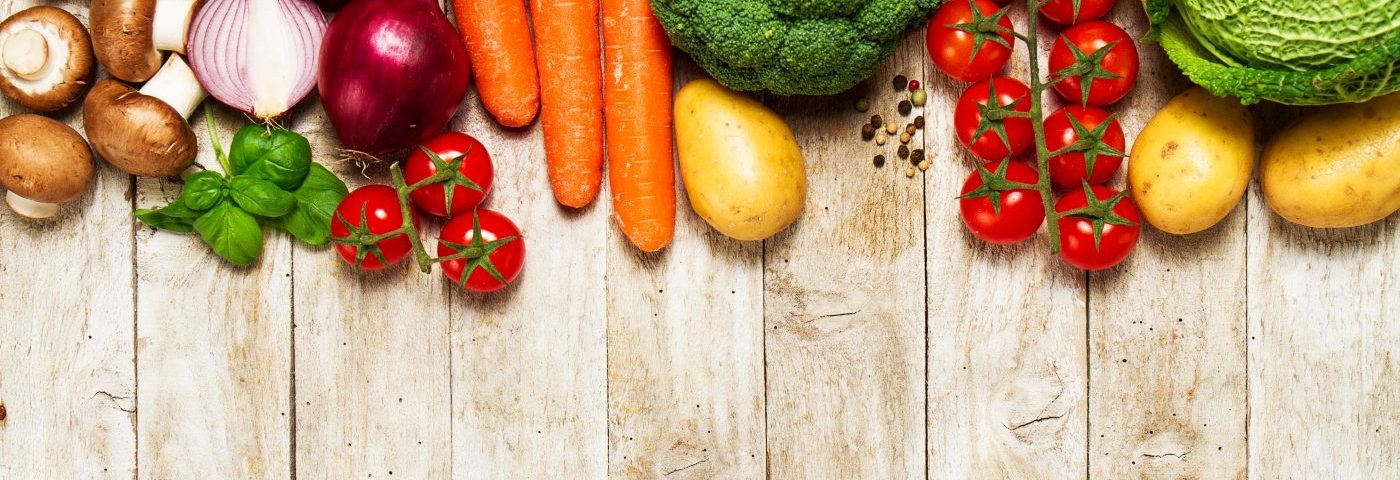Contrary to popular opinion, eating a diet high in vegetables does not reduce the risk of prostate cancer progression in men with early-stage disease, findings from a Phase 3 trial show.
The trial included men managed with active surveillance, in which patients are monitored carefully over time for signs of disease progression, allowing them to forgo immediate radical treatment such as surgery or radiation therapy.
While the trial failed to meet its primary goal, it showed that active dietary counseling can help patients make better food choices, keeping them healthier for when they undergo cancer treatments.
The study, “Effect of a Behavioral Intervention to Increase Vegetable Consumption on Cancer Progression Among Men With Early-Stage Prostate Cancer,” was published in the Journal of the American Medical Association.
Clinical guidelines for men with prostate cancer recommend eating a diet rich in vegetables, as this approach may decrease cancer progression and improve survival, according to some studies, preclinical experiments, and expert opinions.
However, data are lacking from randomized clinical trials demonstrating the efficacy of high vegetable diets for prostate cancer patients.
To find out if the diet affects cancer progression, a team led by investigators at the University of California San Diego (UCSD) School of Medicine and Roswell Park Comprehensive Cancer Center in Buffalo, designed the Men’s Eating and Living (MEAL) Phase 3 study (NCT01238172) to follow men with early-stage prostate adenocarcinoma and determine if increased micronutrient-enriched vegetable consumption affected cancer progression.
The primary analysis included 443 men, between the ages of 50 and 80, diagnosed with early-stage prostate cancer who were split into an intervention group of 226 patients and a control group of 217. Both groups were followed for two years.
The intervention involved telephone counseling in which each patient was assigned to a counselor, who encouraged participants to eat at least seven daily vegetable or fruit servings. Each serving consisted of a half cup (120 mL) of raw/cooked vegetables or fruit, or vegetable juice in addition to at least two servings of tomatoes and cruciferous vegetables such as cauliflower, cabbage, kale, or broccoli.
Control subjects did not receive counseling via telephone calls but were given printed materials encouraging the consumption of a vegetable-rich diet.
The primary outcome was the time it took for the disease to progress (time to progression) as defined by a prostate serum antigen (PSA) level of 10 ng/mL or higher, doubling of PSA in less than three years, or biopsy.
While the diets did not differ significantly between the two groups before the study, after one and two years of follow-up, the intervention patients had significantly increased daily vegetable intake compared to the control group. Blood tests also found higher levels of carotenoids — a biomarker of vegetable intake — in the intervention group.
Overall, the patients experienced 245 progression events: 124 were part of the intervention group and 121 in the control group.
A comparison of the two groups after two years found that the time to progression was not significantly different between the two groups. A progression analysis showed that cancer progressed in 43.5% of those eating the high vegetable diet, compared to 41.4% in the control group.
Repeat biopsy was conducted on 28 patients from the intervention groups and 21 in the control group, with no significant differences found in tumor grade between the two groups.
“These data indicate that, despite prevailing scientific and public opinion, eating more vegetables will not alter the course of prostate cancer,” J. Kellogg Parsons, MD, study lead author from UCSD, said in a press release. “It will not, to the best of our knowledge, suppress or cure it.”
Study co-author James Marshall, PhD, from Roswell Park, added that “while eating a healthy diet rich in fruits and vegetables and getting more exercise may not cure cancer, it may keep the body stronger and healthier, which may help patients tolerate cancer treatments.”

